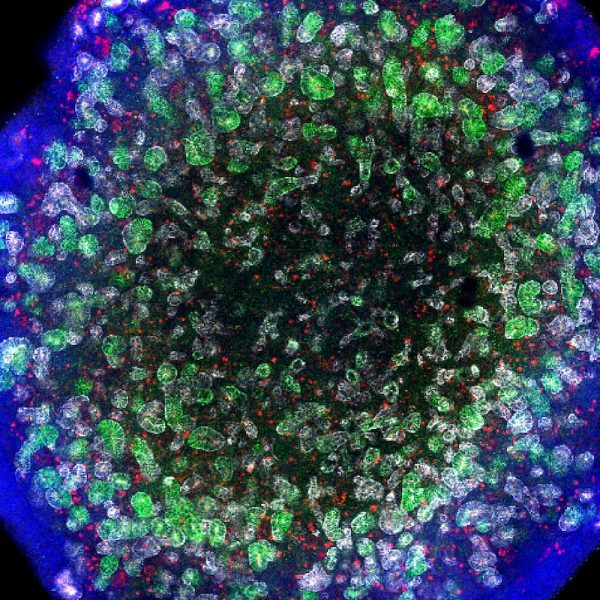How often do you think about your kidneys? My guess is that unless there’s a problem, probably never, and yet they are hard-working machines that keep us alive. Here’s how:
- They act as filters, constantly removing waste products from the blood.
- They help maintain a proper balance of water, salts, and minerals in the blood.
- They release important hormones that help make red blood cells, regulate blood pressure, and keep our bones strong.
It always amazes me that we can live just fine with only one kidney. Even so, we can’t take our kidneys for granted. If they become damaged it could lead to chronic kidney disease. I was surprised to learn how prevalent that is in the United States. According to the CDC, 30 million adults or 15% of the population, have chronic kidney disease.
Other chronic health conditions can increase the risk. Two, in particular — high blood pressure and diabetes. People don’t usually have symptoms in the early stages of chronic kidney disease, but it can be picked up by a routine urinalysis that measures protein levels.
Too much protein in the urine is the first sign something may be wrong with the kidneys. That’s why it’s important to have your urine checked at least once a year, especially if you have other diseases like high blood pressure or diabetes.
Chronic kidney disease symptoms
Once you have chronic kidney disease, if you catch it early you might be able to slow things down, but it will progress, and it moves silently, says kidney specialist Dr. Hermann Haller.
The kidneys can compensate for a long time. Unfortunately, when the kidneys fail, it’s unlike the heart where you are in pain or you experience very early problems, such as arrhythmia. The kidneys die silently.
Hermann Haller, MD, Nephrologist
Symptoms don’t usually begin to appear until the kidneys are badly damaged and starting to fail. Here are some of the more common ones:
- Itching
- Muscle cramps
- Nausea, vomiting
- Loss of appetite
- Swelling in the legs, ankles, or feet
- Shortness of breath
- Too little or too much urine
- Confusion
Treatment
In the early stages of chronic kidney disease, treatments include lifestyle changes and medications aimed at controlling blood pressure and diabetes. Dr. Haller says there is a new diabetes drug that may also prevent kidney failure. Studies are ongoing.
The new drug for diabetes blocks the uptake of glucose into the bloodstream. It may also prevent or ameliorate kidney failure, independent of its blood glucose lowering effect. Thousands of patients are now enrolled in studies. We hope to have results by the end of next year.
Dr. Haller
The drug’s effect on the kidneys was discovered by chance.
It was serendipity. Scientists discovered it when they were looking at whether people live longer. They found out that yes, they do and their kidneys were also much better.
Dr. Haller
Dr. Haller is the new president of the MDI Biological Laboratory (MDIBL) in Bar Harbor, Maine. He has been doing kidney research at the lab for more than 20 years. He’s also a member of the faculty there and a full professor and chairman of the Division of Nephrology at the Hannover Medical School in Germany.
He says that right now, the only treatment options for someone whose kidneys have failed are kidney dialysis or a transplant, using a donated kidney.
When you’re on dialysis you’re hooked up to a machine for about three hours, usually three times a week in a hospital or dialysis center, or every day if you do it at home. The machine filters waste products out of your blood. Dialysis saves lives, but it’s extremely expensive.
Kidney transplants also save lives, but there are far more people on waiting lists than people who actually have transplants. And if you do get a new kidney, you have to take immunosuppressive drugs, which come with their own problems.
When you have a transplant, you’re off the dialysis machine, which for most patients is wonderful. But all those drugs put people at risk of developing other problems down the line. They are more prone to infection and developing problems with high blood pressure and diabetes. Fifty percent of these kidneys will fail after 10 years.
Dr. Haller
Kidney regeneration research
The research that Dr. Haller is doing at the MDI Biological Laboratory may someday lead to another option for people with kidney failure. He has been studying, on a molecular level, how animal species such as the skate and the zebrafish are able to regenerate their organs. Because of the knowledge he has gained in his research, he’s been able to manipulate stem cells to create human kidney tissue.
We can make stem cells, which you need for generating an organ from individual patients. In the last years, we have been able to make organoids for kidneys and other organs. These are small organs that are not fully developed, but this is what we’re working on at the moment.
Dr. Haller
Dr. Haller is not the only scientist interested in regenerating kidney tissue and eventually being able to create an artificial kidney. (Re) Building a Kidney (RBK) is a consortium of research projects funded by the National Institutes of Health. This summer, RBK scientists from research centers across the country will be conducting kidney research at MDI as visiting scientists.
For the past 100 years, the MDI Biological Laboratory has been doing kidney research that has contributed to some of the major advances we see today. Dr. Haller’s research and collaboration with other scientists will hopefully, lead to more life-saving advances.
We can build a new kidney from the cells of the individual patient. I don’t need cells from your own kidney. I can take cells from your skin and make them into stem cells and build a new kidney out of them. To make stems from the skin, that’s a miracle and that’s the basis for our work. We can now generate organs for individual patients from their own cells.
Dr. Haller
They can grow new kidney tissue, but getting it to work like a real kidney is the challenge they are facing now.
Vascularization of the tissue is the most urgent problem. This is a crucial step. I think once we have the blood flow through the kidney, the body is quite capable of generating out of this fragile new kidney a better kidney. But the blood flow and the flow through the tubules are the most important issues at the moment.
Dr. Haller
We may not actually see it for many years — Dr. Haller predicts 10 to 15. But imagine not needing to go on dialysis or be on a long waiting listing for a kidney donor if you have kidney disease. To, instead, have the option of getting a new kidney that is grown from your own skin cells. And that is what scientists are working on right here in Maine.



Leave A Comment